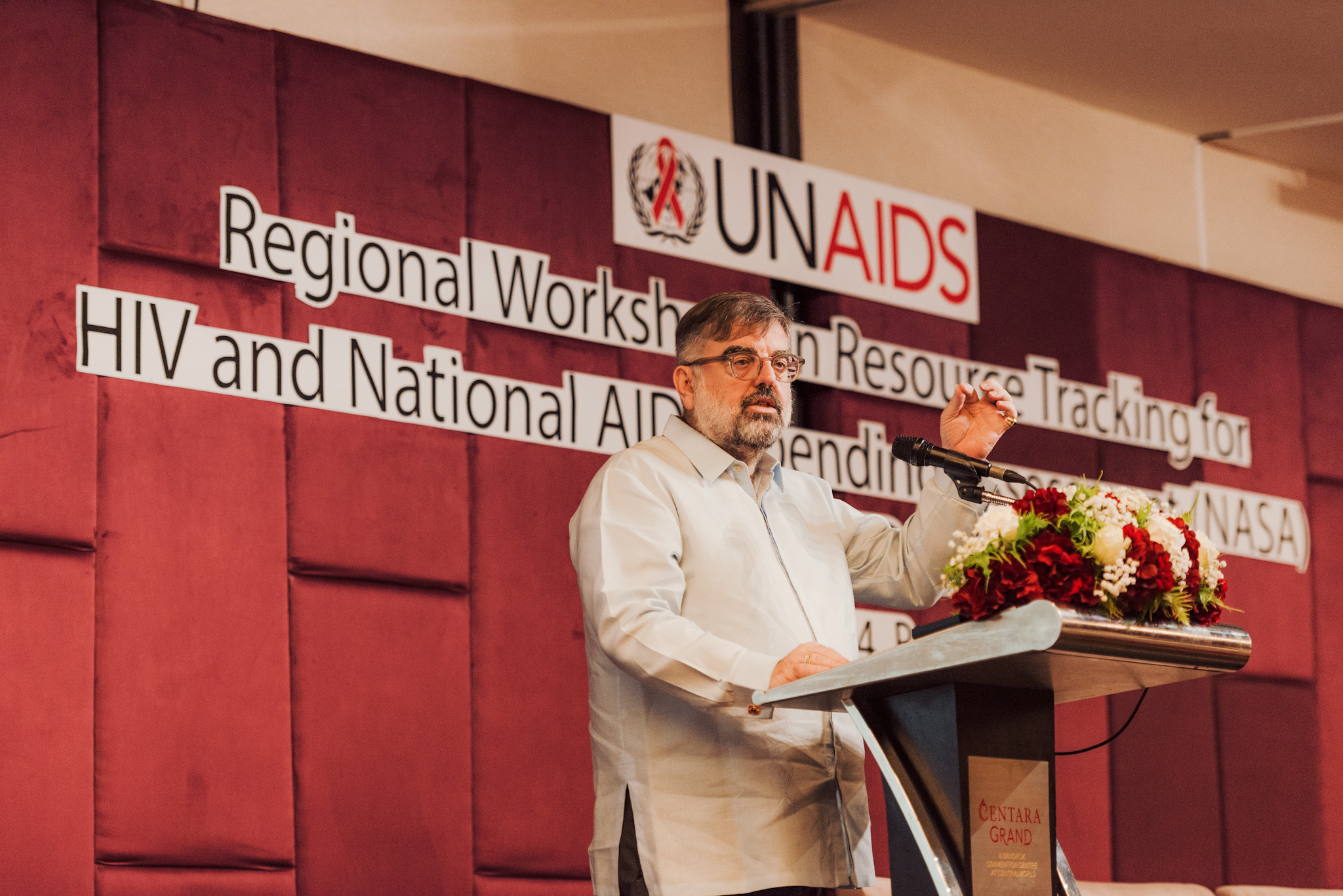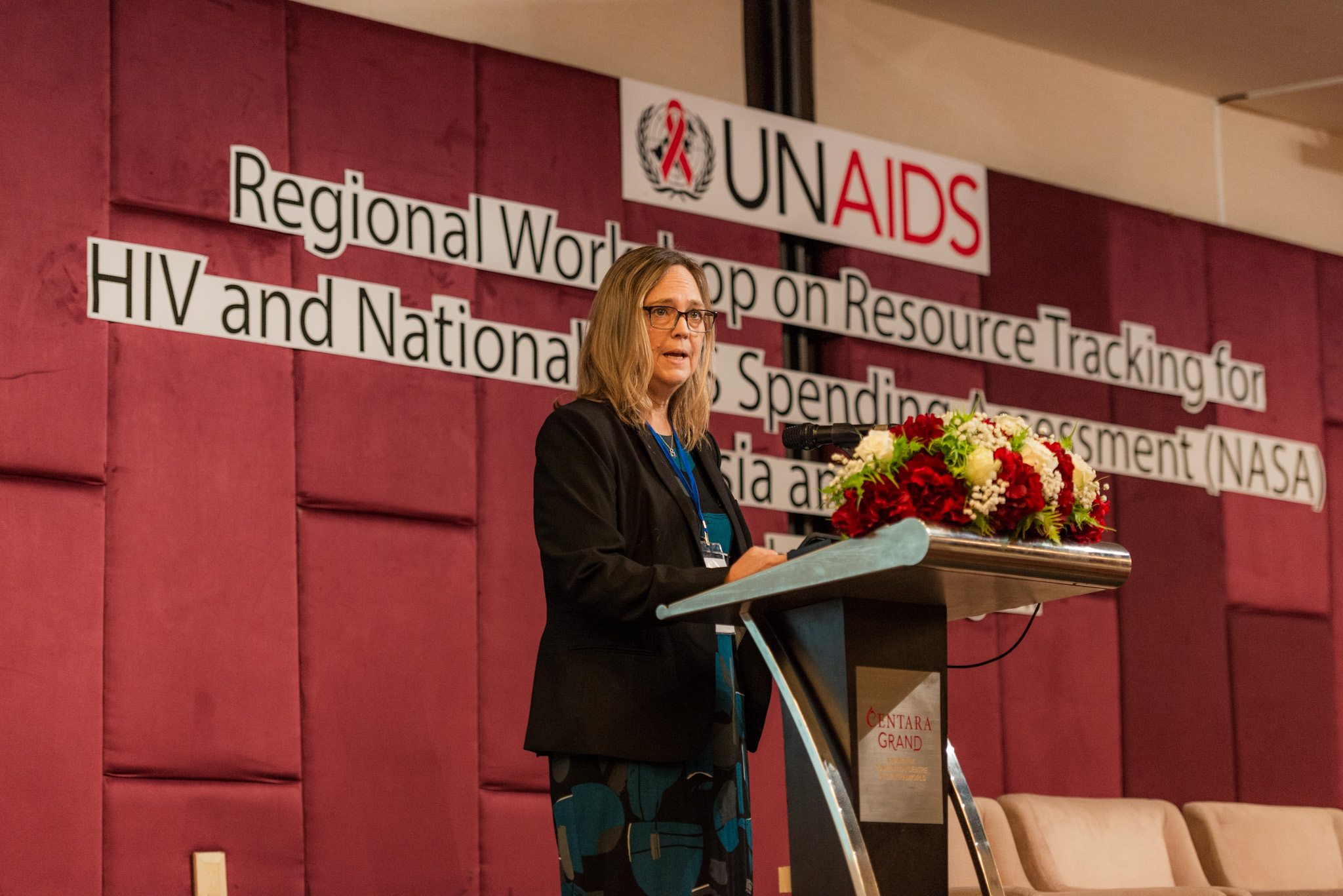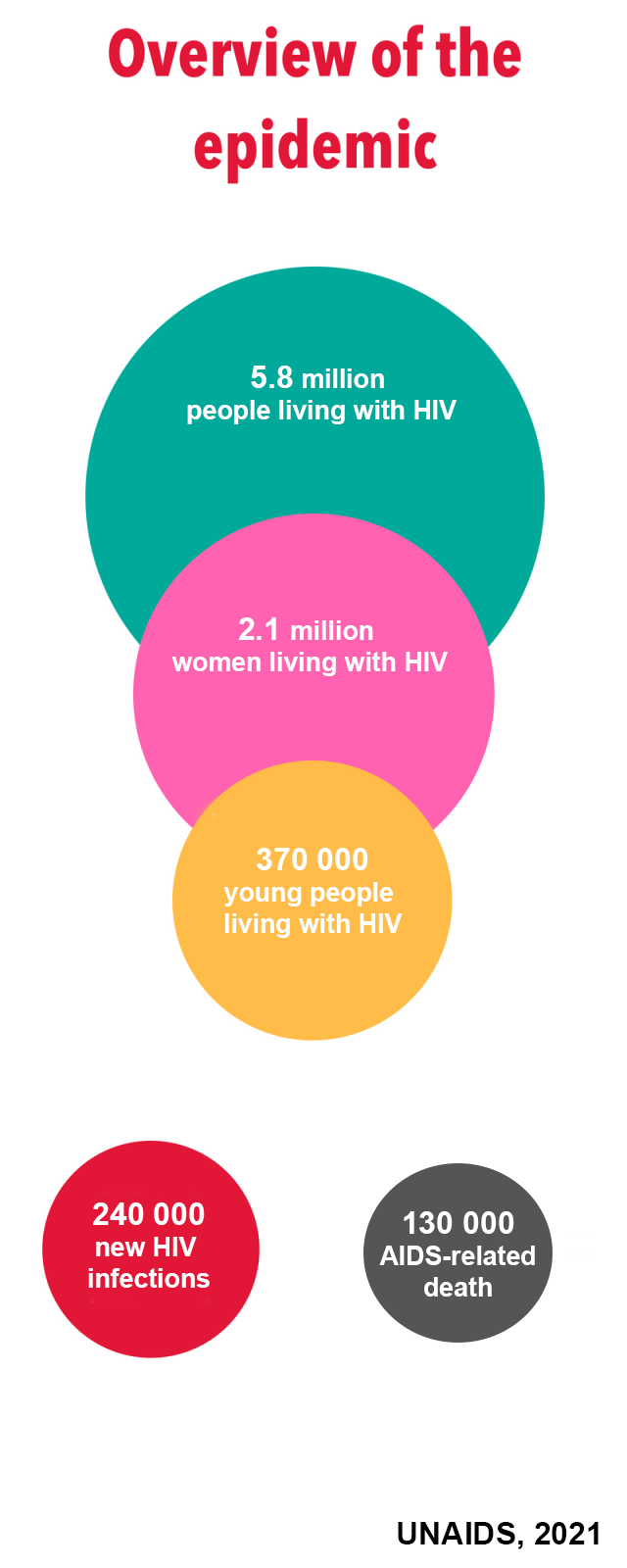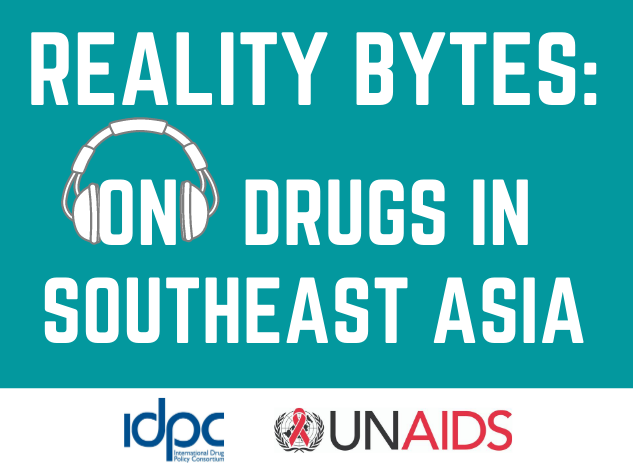Asia Pacific stakeholders benefit from capacity building and cross-country exchange on HIV expenditure tracking

From March 4 to 6, UNAIDS hosted ten multidisciplinary Asia Pacific country teams in Bangkok to strengthen their ability to plan, implement and optimize the National AIDS Spending Assessment (NASA) and other relevant resource tracking methodologies. Participants included communities living with, and affected by, HIV and representatives of Health Ministries, National AIDS Programmes and development partners. The participating countries were Bangladesh, Cambodia, Indonesia, Mongolia, Nepal, Pakistan, Philippines, Papua New Guinea, Thailand and Viet Nam. Over three days, they shared their experiences in using resource tracking data to influence policy decisions, bolstered their HIV resource tracking planning skills and learned how evidence from these assessments can be better leveraged to build more effective, efficient and sustainable HIV programmes.
The NASA is a resource tracking method tailored for multisectoral HIV response spending. It provides decision-makers with accurate, granular and current strategic information that allows them to make key policy or programmatic decisions, mobilize funding, improve efficiencies and invest more strategically. NASAs also form the basis for global reporting on financial indicators in the context of the Global AIDS Monitoring (GAM) process.
“Every country counts. No country can stand alone,” said Eamonn Murphy, UNAIDS Regional Director to Asia Pacific and Eastern Europe Central Asia. “As countries work to reach the goal of ending AIDS as a public health threat by 2030, planning is urgently needed to transform the response. The world is moving to a different health financing environment, and it is important not to lose the gains made to date.”

In Asia Pacific, evidence on expenditures for key population programming, community-led responses, HIV prevention and societal enablers, are particularly critical to inform decision-making and advocacy. Regionally, 11% of HIV spending in 2022 was targeted toward programmes serving the key populations—men who have sex with men, people in prisons and other closed settings, people who use drugs, sex workers and transgender people. This falls far short of the estimated 35% spend required to address these groups’ disproportionate HIV burden. In 2022 96% of all new HIV infections in Asia and the Pacific were among key populations and their sexual partners.
Sara Klucking, PEPFAR Coordinator for the Asia region, welcomed the opportunity to transform NASA findings into more effective outcomes: “This helps us understand how to balance lifelong delivery of equitable services with partnership with the communities most burdened by HIV in both the treatment and prevention arenas.”

Expenditure tracking through NASAs is increasingly crucial to inform the development of sustainability roadmaps. They facilitate planning and investments from external and domestic sources in a strategic manner to optimize the available resources and ensure programme sustainability.
The workshop drew on the experiences of countries that are in various stages of recent resource tracking implementation including Cambodia, Mongolia, Pakistan, Indonesia and Thailand. Through various plenary sessions they shared their experiences with those countries planning to conduct the NASA in 2024. There were also opportunities for cross-regional learning as participants learned of approaches used in African and Eastern European countries.

Workshop sessions focused on innovations in expenditure tracking, including institutionalization, and the evolution of the NASA framework and tools. Among the new areas of focus is resource tracking for community-led responses.
Teams developed country plans to implement NASA, optimize its utility and enhance the sustainability of expenditure tracking. They also accessed expert advice to help troubleshoot country-specific issues. UNAIDS will continue to support countries to conduct and analyze their NASAs, ensuring evidence is used to strengthen advocacy, resource mobilization, policy development and programmatic finetuning.
The workshop was supported by the US Agency for International Development (USAID) and the President’s Emergency Plan for AIDS Relief (PEPFAR). It was coordinated by the UNAIDS Asia Pacific Regional Support Team with technical assistance from the UNAIDS Equitable Financing practice.
Quotations
We need very precise data to make sure key aspects of the HIV response continue to be funded, particularly key population programmes and community-led HIV responses.
Jaime Atienza Azcona, Director, UNAIDS Equitable Finance Practice
How do we move away from aspirational investment cases to planning exercises that link to all sources of financing, external and domestic? We must show efficiencies and demonstrate how we can do more with less.
Kalipso Chalkidou, Head, Global Fund Health Finance Unit
In a time of multiple crises and constrained budgets we must use available resources optimally and become more efficient in our response. Expenditure tracking is the key to get the data to conduct this analysis.
Dr. Cheewanan Lertpiriyasuwat, Head, Thailand Division of AIDS and STIs, Ministry of Public Health
 UNAIDS Asia-Pacific
UNAIDS Asia-Pacific 


